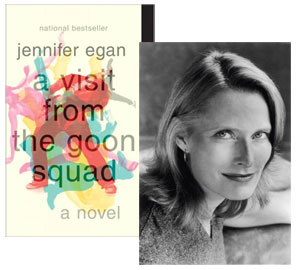A Sneak Preview of Beatrice #2
Here’s a short excerpt from the conversation I had with Jodi Picoult in the spring of 2012, just as her novel Lone Wolf was coming out. Lone Wolf, like its immediate predecessor Sing You Home, is told through multiple first-person narrators—one of several complex and often innovative literary techniques I’d noticed once I began reading Picoult’s novels in the wake of the Franzenfreude debate. So we talked a bit about how a literary device that was once considered radical and avant-garde can now turn up in commercial fiction without any fanfare—and, in another part of the conversation not included in this clip, she told me a bit more about how and when she decides to use it to tell the story she’s telling in a given book.
This interview will be published in the second issue of the “enhanced ebook” version of Beatrice later in July 2012, as a feature-length Q&A accompanied by a short video clip—not this one, but an entirely different segment of the conversation. Picoult will be joined in Beatrice #2 by debut novelists Alice Albinia and Nick Dybek. iPad users will be able to purchase the ebook from Apple’s iBookstore for $2.99. (I’m working on also making these ebooks available to readers with other tablet devices, such as the Kindle Fire or the Nook Tablet, as soon as affordably possible.) Keep an eye here for the news of its release, or join the Beatrice mailing list and you’ll get a more direct announcement.
4 July 2012 | interviews |
Jennifer Egan, Winning
 Yesterday, I wrote an item for Shelf Awareness about the launch of the Goodreads Book Club, which will feature Jennifer Egan’s A Visit from the Goon Squad. I spoke to Egan for the piece, and it includes some reflections on her own involvement with book clubs as both an author and a reader, but I’d also spoken with her about the books she’s been reading lately, including Jessica Hagedorn’s Toxicology, The Uncoupling by Meg Wolitzer, and Emma Donoghue’s Room. “I thought it was spectacular, really, deeply unsettling,” she said of the Donoghue. “I felt one of those seismic shifts inside me reading it, which is rare for me.”
Yesterday, I wrote an item for Shelf Awareness about the launch of the Goodreads Book Club, which will feature Jennifer Egan’s A Visit from the Goon Squad. I spoke to Egan for the piece, and it includes some reflections on her own involvement with book clubs as both an author and a reader, but I’d also spoken with her about the books she’s been reading lately, including Jessica Hagedorn’s Toxicology, The Uncoupling by Meg Wolitzer, and Emma Donoghue’s Room. “I thought it was spectacular, really, deeply unsettling,” she said of the Donoghue. “I felt one of those seismic shifts inside me reading it, which is rare for me.”
“For a long time before that, I was actually reading nineteenth-century novels,” Egan added. “I reread Anna Karenina, David Copperfield, and Bleak House in the last few months… One thing that I’m really interested in is the way that the nineteenth century has come to be regarded as this bastion of convention—when people mention the conventional novel, they’re often alluding to the nineteenth century—and yet, those books aren’t conventional at all. They were very loose and flexible and they had lots of things that I think would almost be regarded as experimental now. I’m kind of curious about that, and I definitely want to read more, but there’s a lot of recent stuff I want to catch up on, so I’m going to do that first.”
11 May 2011 | interviews |

 Our Endless and Proper Work is my new book with Belt Publishing about starting (and sticking to) a productive writing practice.
Our Endless and Proper Work is my new book with Belt Publishing about starting (and sticking to) a productive writing practice. 
